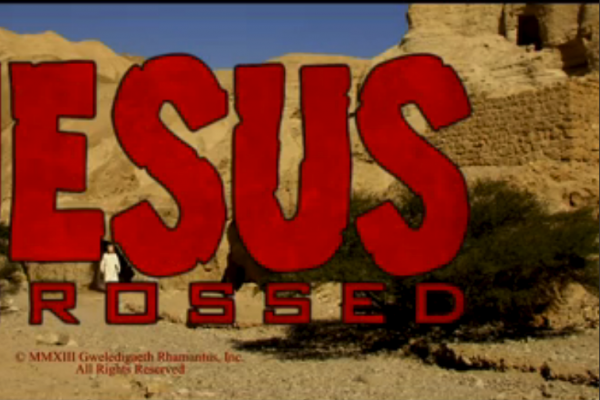Whenever I talk with people about Jesus and nonviolence, a curious thing happens. Someone will inevitably raise his hand (and it’s always his hand), call me a wuss, and then accuse me of making Jesus-Christ-Our-Lord-And-Savior into my own wussy image.
First, the accusation that I’m a wuss is totally true. No one can surpass my wussiness. I run from confrontation, and if I ever get into a fight my money is on the other guy.
Now, to the second accusation that a nonviolent Jesus is a projection of my own wussy imagination: That is false and, in fact, the reverse is true – a violent Jesus is a god made in our own image. As a self-professed wuss, I would love a bad-ass-machine-gun-toting Jesus who violently defends me against my enemies. I want the Jesus depicted in Saturday Night Live’s sketch DJesus Ucrossed. (A sketch satirizing Quentin Tarantino’s Django Unchained.) As David Henson brilliantly states in his post “DJesus Uncrossed: Tarantino, Driscoll and the Violent Remaking of Jesus in America,” the sketch “pulls back the curtain and shows us just how twisted our Jesus really is: We want a Savior like the one SNL offers. We want the Son of God to kick some ass and take some names. Specifically, our enemies’ names.”
David goes on to quote Mark Driscoll, a megachurch pastor from Seattle whose theology of hate has had a major influence on American Christianity. Driscoll states,
In Revelation, Jesus is a prize fighter with a tattoo down his leg, a sword in His hand and the commitment to make someone bleed. That is a guy I can worship. I cannot worship the hippie, diaper, halo Christ because I cannot worship a guy I can beat up.
Read the Full Article

